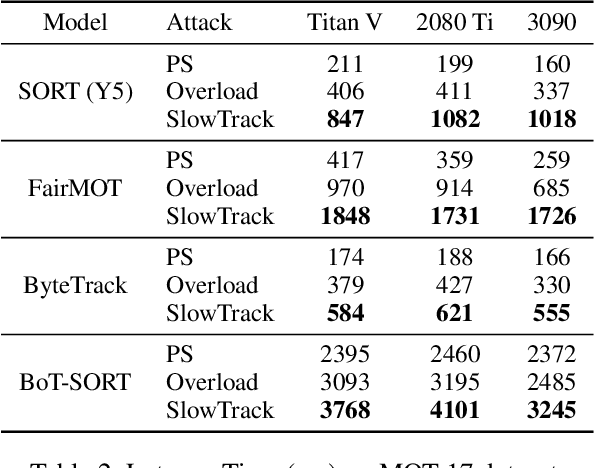SlowTrack: Increasing the Latency of Camera-based Perception in Autonomous Driving Using Adversarial Examples
Paper and Code
Dec 26, 2023



In Autonomous Driving (AD), real-time perception is a critical component responsible for detecting surrounding objects to ensure safe driving. While researchers have extensively explored the integrity of AD perception due to its safety and security implications, the aspect of availability (real-time performance) or latency has received limited attention. Existing works on latency-based attack have focused mainly on object detection, i.e., a component in camera-based AD perception, overlooking the entire camera-based AD perception, which hinders them to achieve effective system-level effects, such as vehicle crashes. In this paper, we propose SlowTrack, a novel framework for generating adversarial attacks to increase the execution time of camera-based AD perception. We propose a novel two-stage attack strategy along with the three new loss function designs. Our evaluation is conducted on four popular camera-based AD perception pipelines, and the results demonstrate that SlowTrack significantly outperforms existing latency-based attacks while maintaining comparable imperceptibility levels. Furthermore, we perform the evaluation on Baidu Apollo, an industry-grade full-stack AD system, and LGSVL, a production-grade AD simulator, with two scenarios to compare the system-level effects of SlowTrack and existing attacks. Our evaluation results show that the system-level effects can be significantly improved, i.e., the vehicle crash rate of SlowTrack is around 95% on average while existing works only have around 30%.
 Add to Chrome
Add to Chrome Add to Firefox
Add to Firefox Add to Edge
Add to Edge